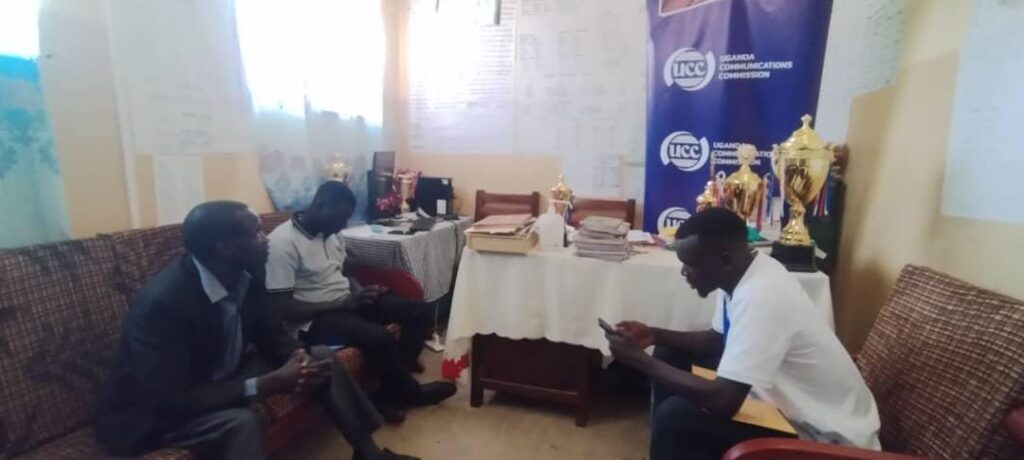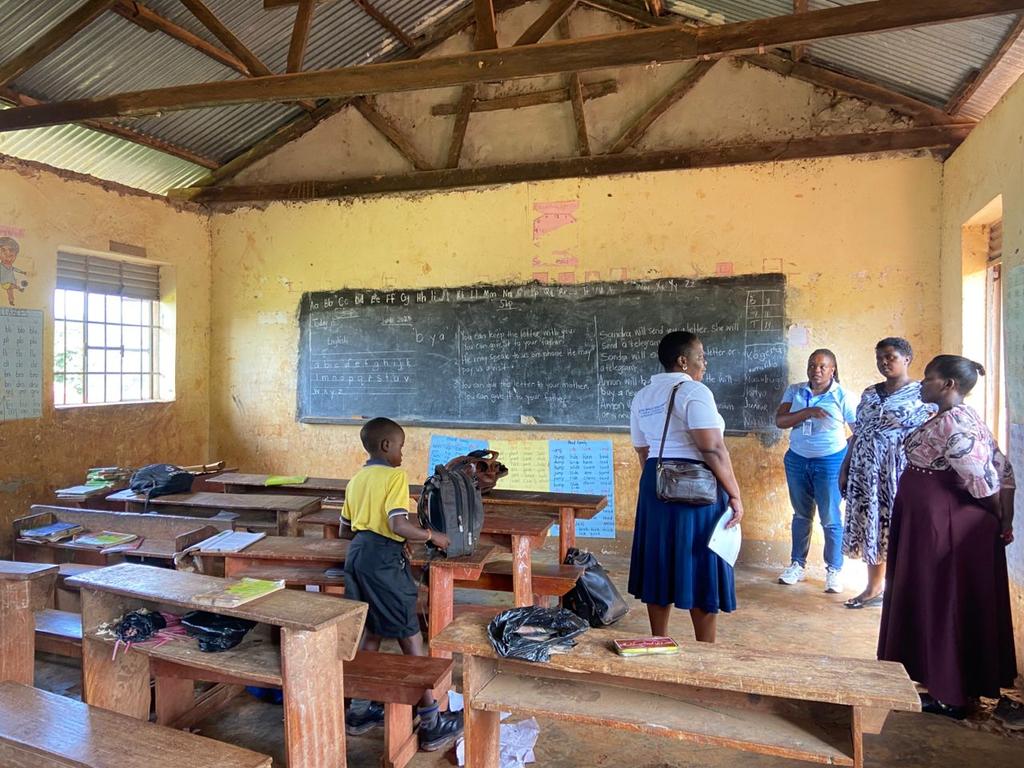The dream of integrating digital tools in Uganda’s primary schools is alive, but deeply uneven. Across five regions of the country, teachers, education officers, and school administrators have opened up about their hopes, hurdles, and the growing urgency for digital transformation in the classroom.
This was part of a nationwide needs assessment by the Digitally Enabled Community-Centered Early-Childhood Development Approach (DECEDA), an initiative led by Nkumba University with support from the Uganda Communication Commission, through the Uganda Communications Universal Service and Access Fund (UCUSAF), to understand Uganda’s digital education readiness, before transformation can begin.
“Before we transform, we must understand,” said Prof. Jude Lubega, Nkumba University Vice Chancellor and DECEDA Project Lead. “With insights from the field, DECEDA will build targeted interventions for sustainable change. Every child deserves digital education. The work starts here.”
From Eastern to West Nile, Northern to Central and Western Uganda, the DECEDA team has been engaging teachers, inspecting ICT labs, and collecting vital data. The findings are vivid.
“A good number of teachers want to teach digitally but lack the tools and skills,” observed Mr. Joseph Lwevuze, an eLearning expert. “We listened to voices from classrooms across Uganda. The results will shape a smarter future. The gap is real, but now, we have the data. On the ground, in the classrooms, for the future.”
In West Nile, there was a different tone, one of hope. After engaging with Aspire and Ayavu Primary Schools and holding discussions with local District Education Officials, the team was struck by the enthusiasm for digital learning.
“Digital transformation acceptance rates are high in this region,” Said Moses Bella Bella, a DECEDA Needs Assessment Team Member. Mr. Raymond Ombere, Arua City Education Officer, added: “We want to help, but we lack digital tools, but I am certain, these assessments will help tailor the support we need.” He noted that DECEDA could also help solve compliance challenges with the Ministry of Education’s Teacher Effectiveness and Learner Achievement (TELA) system, which remains difficult for many teachers to navigate.
Further north in Lira City, Education Officer Mr. Peter Ocen said the case for digital tools in early childhood learning is overdue. “The need for integration of ICT in primary education has been long overdue. We must start early,” he urged.

In Rwambutura Primary School, Western Uganda, the team found a school ready for leadership. The Director of Studies proudly took them through the ICT lab, which is set to serve as an anchor for surrounding schools in the region once infrastructure is upgraded.
But not every story was optimistic. In Manafwa District, Senior Education Officer Mr. Wanjala expressed concern. “There’s a very low ICT skills uptake in our area,” he said. “Our prayer is that DECEDA, being a pilot program, turns out to be successful.”
Back in Central Uganda, the team visited Ttamu Primary School in Mityana District, where the yearning for digital learning was evident.
“The need is ideal,” noted one team member, “but the yearning is overwhelmingly amazing.”
They continued to Ggoli Girls Primary School, where Headmistress Sr. Nakasumba Caroline welcomed them before pupils shared their own excitement about digital learning.
In Mpigi District, District Education Officer Mr. Sekyole Dougratias delegated Senior Education Officer Ms. Jascent Ndagire to speak with the DECEDA team. The engagement highlighted urgent ICT needs in the area’s primary schools.
Meanwhile, in Gomba District, Inspector of Schools Mr. Lwanga Charles and District ICT Officer Mr. Kimera Hannington joined Headmistress Ms. Namutebi Resty of St. Aloysius Beterem P/S for a tour of the school’s infrastructure.
In the Western Region, DECEDA’s trail led to Kaberebere P/S, followed by a visit to Sanga Parents School in Kiruhura District, where the team was reminded of the fragility of digital promises. “In 2019, UCC pledged to deliver a computer,” said one school official. “I hope this is a delivery of the promise.”

According to Mr. Kato Mustapha Sserwanda, an eLearning consultant, this kind of ground-level engagement is essential. “From digital infrastructure to teacher readiness, the needs assessment maps the reality in rural classrooms,” he said.
Prof. Jude Lubega underscored the mission: “Before we transform, we must understand. The DECEDA Needs Assessment begins. Most teachers want to teach digitally, but lack the tools. Our survey maps the way forward.”
The findings of this nationwide needs assessment will inform how digital learning can be scaled sustainably. As Uganda dreams of a smarter generation, DECEDA is starting where it matters most: by listening.
Nkumba University News will continue to follow the DECEDA journey across Uganda’s classrooms, as the project transitions from understanding to transformation.



















Discussion about this post